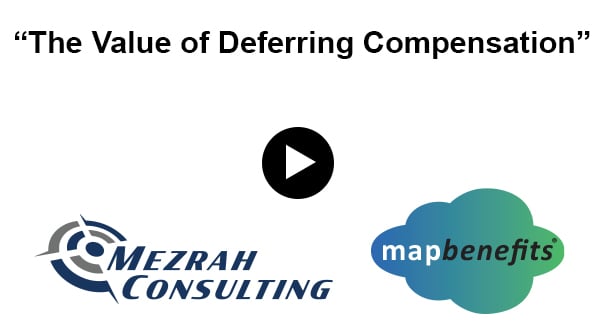
Resources
Mezrah Consulting's Original Content, News and Community Service...
Articles




The Value of Deferring Compensation

The Adventures of SuperMez—Retain Executive

The Adventures of SuperMez—RSUs and PSUs

The Adventures of SuperMez—Acquisition DCP

The Adventures of SuperMez—Positive Board Results

The Adventures of SuperMez—Earnings Impact Resolved

The Adventures of SuperMez—Sticky Plans Work
Frequently Asked Questions
What is 409A?
The American Jobs Creation Act of 2004 added section 409A to the Internal Revenue Code, providing new rules for nonqualified deferred compensation plans. Section 409A provides that unless specified requirements are met, all amounts deferred under a nonqualified deferred compensation plan for all taxable years are currently includible in gross income, to the extent not subject to a substantial risk of forfeiture and not previously included in gross income.
Why is 409A compliance important?
Compliance with 409A is critical because companies must abide by its rules and specific requirements; otherwise, the IRS can assess penalties. These penalties usually affect company employees and shareholders and can result in significant financial loss.
Do you have to fund a deferred compensation plan?
A deferred compensation plan can only be informally funded, but it is not required to be informally funded. Most plans are informally funded with either taxable securities or nontaxable securities. Companies acquire assets to hedge the liability created when a plan participant defers income. Informal plan funding can effectively mitigate and may eliminate any P&L impact by efficiently managing the company's balance sheet.
The corporation will invest in assets and allocate the dollars received to mirror that of the plan participants’ investment allocations. This type of funding approach is called match funding (i.e., the asset is equal to the liability).

